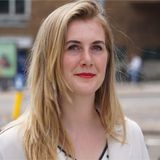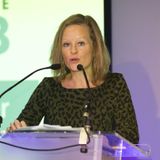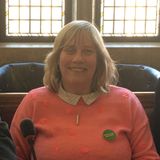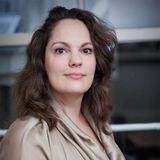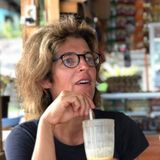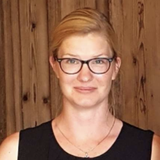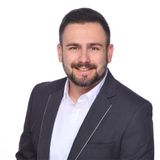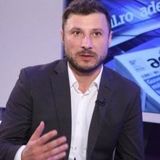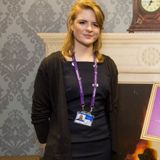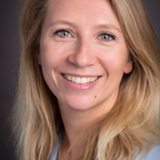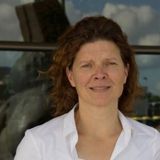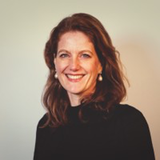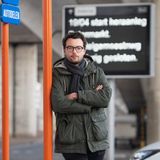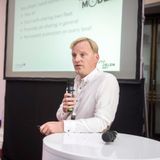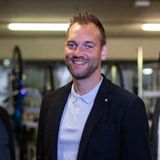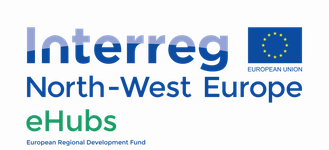eHUBS are starting to play an important part in the development of sustainable and liveable cities. As the shift to more sustainable transport becomes increasingly urgent, we must develop services which provide a real last-mile alternatives to the private passenger car. This is where eHUBS come in. An eHUB is an on-street location where electric shared mobility services, from escooters, to ebikes and cargo bikes can be found and used. These mobility hubs have the potential to significantly change the future of urban mobility, creating accessible, affordable and centralised shared mobility services. In this conference, we share experiences and exchange ideas about the current use and future of eHUBS.
To watch back all programmes and sessions, click here.
The conference will explore the role of eHUBS, the lessons learned from cities pioneering them and opportunities for the future found by universities. Across two days, we hear from local authorities, universities, and mobility experts, sharing knowledge and inspiring their peers.
Several European cities are already experimenting with eHUBS, piloting the concept to create cleaner, sustainable and livable cities. This eHUBs conference is a result from the eHUBS project, which is funded by the Interreg NWE Programme, with six partner cities from five countries implementing the shared mobility concept, paving the way for others to do the same.
PROGRAMME DAY 1
10.00 – 11.15: Opening session
in the ‘Grote Zaal’ on the second floor
We start the day with an opening speech by Alderperson from the City of Amsterdam Melanie van der Horst.
The opening speech will be followed by a dialogue on the need for building liveable and sustainable cities and how a focus on shared mobility and hubs could free up space for our green and social ambitions, with Manchester councilor Tracy Rawling, Amsterdam councilors Elise Moeskops and Zeeger Ernsting and with Karen Vancluysen.
After a short music break, we’ll continue the opening session with a panel discussion with representatives of different European universities. In this panel, we discuss the role of the universities in current and future debates around future-proof and sustainable cities. How does shared mobility fit into this and what needs to be done to use the knowledge created by research to create impact?




We round up the opening session with an overview of the rest of the conference.
11.15 – 11.30: Coffee break
In the foyer on the second and fifth floors.
11.15 – 14.45: Information market and networking space
In the Expo on the first floor, the information market with shared mobility suppliers opens.
In the Meetingroom on the second floor, the networking space opens.
With market stands by Fluctuo, Cargoroo, Vianova, Bolt, Troopy, Cityway, Deelfiets Nederland, Fairsfair & Dott
BREAKOUT ROUND 1 (11.30 – 12.30)
What are the options for citizens to start their own local non-profit sharing schemes? Can individual groups of residents start their own multimodal sharing solutions?

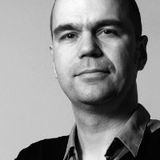

What lessons did we learn in Leuven, Kempten and Amsterdam during eHUBS? What were the projects in these cities, and how did the results and experiences compare to their expectations?
How and why do we used shared mobility services? A session by TU Delft and Newcastle university on measuring behaviour of shared mobility users.
A session on designing a handbook on eHUBS strategies by Bayern Innovative. You want to start an eHUBS project in your municipality? The eHUBS blueprint offers a start into the concept of shared mobility hubs and includes all the best practices from the eHUBS project via an online course. In the session you will learn what to expect from the online course and be the first ones to take a look at the blueprint. Your feedback will be much appreciated. You will have the chance to share your first impression of the blueprint and what topics are most relevant to you.
NOTE: It is recommended to bring your laptop to this break out session.
Lunch break
From 12.30 hours to 13.30 hours
in the foyer on the second and fifth floors.
BREAKOUT ROUND 2 (13.30 – 14.30)
How can we create sustainable and liveable cities by designing public space from the perspective of the people? What would the city look like if we had more room for meeting people and children playing? And how can eHUBS help to reach this goal?
What lessons did we learn in Dreux, Nijmegen and Manchester during eHUBS? What were the projects in these cities, and how did the results and experiences compare to their expectations?
This session will be focusing on investigating behaviour change by analysing pre-eHUB and post-eHUBS implementations and mode substitution patterns (Dr Bosehans). This will be followed by explaining the results of Emissions modelling exercise for all eHUBS cities. (Dr Zhang). Finally, we will explain how to scale up emissions over the region using Manchester case study.




Why do most people find it difficult to switch from private cars to shared mobility? Even when the alternative is cheaper, faster and creates sustainable and liveable cities? How can we change our mobility habits?
Coffee break
From 14.30 hours to 14.45 hours
in the foyer on the second and fifth floors.
Closing session
14.45 hours – 16.00 hours
in the Grote Zaal on the second floor.
We end the first day of the conference with Pete Sykes and Geert Kloppenburg.
We continue the closing session with a panel on the future of urban mobility and public space. How does eHUBS help create people-centred liveable and sustainable cities?
What lessons did we learn, what expectations did we challenge and how do we look to the future of urban mobility?
After this panel discussion, the first day of the conference will be closed by the representative of Interreg and the Chief Technology Office of Amsterdam. We reflect on what we learned and how to use this information.
PROGRAMME DAY 2
The second day will start with a plenary session and will be followed by several rounds of workshops. Throughout the conference there will be plenty of networking opportunities where attendees meet experts, policymakers and transport stakeholders from across Europe.
Plenary session
10.00 – 10.15 hours – Welcome and explanation of the programme in the IJzaal on the 5th floor.
Breakout round 1 (10.15 – 11.15 hours)
A workshop on the digital city and the digital infrastructures required to make eHUBS a success.
A workshop where we explain how the eHUB pilot cities are trying to implement a longstanding network of eHUBS,
show which ways Cargoroo is aligning its business model and operations with the objectives of the pilot cities,
and discuss with the participants how providers and authorities could realign their objectives and establish a beneficial partnership.
A site visit to the Marineterrein to explore a developing hub on site.
Coffee break
11.15 – 11.30 hours in the foyer on the 5th floor
BREAKOUT ROUND 2 (11.30 – 12.30)
A solid policy is the backbone of maximising the benefits of implementation of shared mobility. During this interactive breakout session, you will learn about important key elements for shared mobility frameworks.
A conversation with different parties offering different shared mobility possibilities, followed by a discussion with two of the cities where these shared mobility services have had a trial period.
A site visit to the Marineterrein to explore a developing hub on site.
Lunch break
From 12.30 hours to 13.15 hours
in the foyer on fifth floor.
A site visit to the Marineterrein to explore a developing hub on site.

